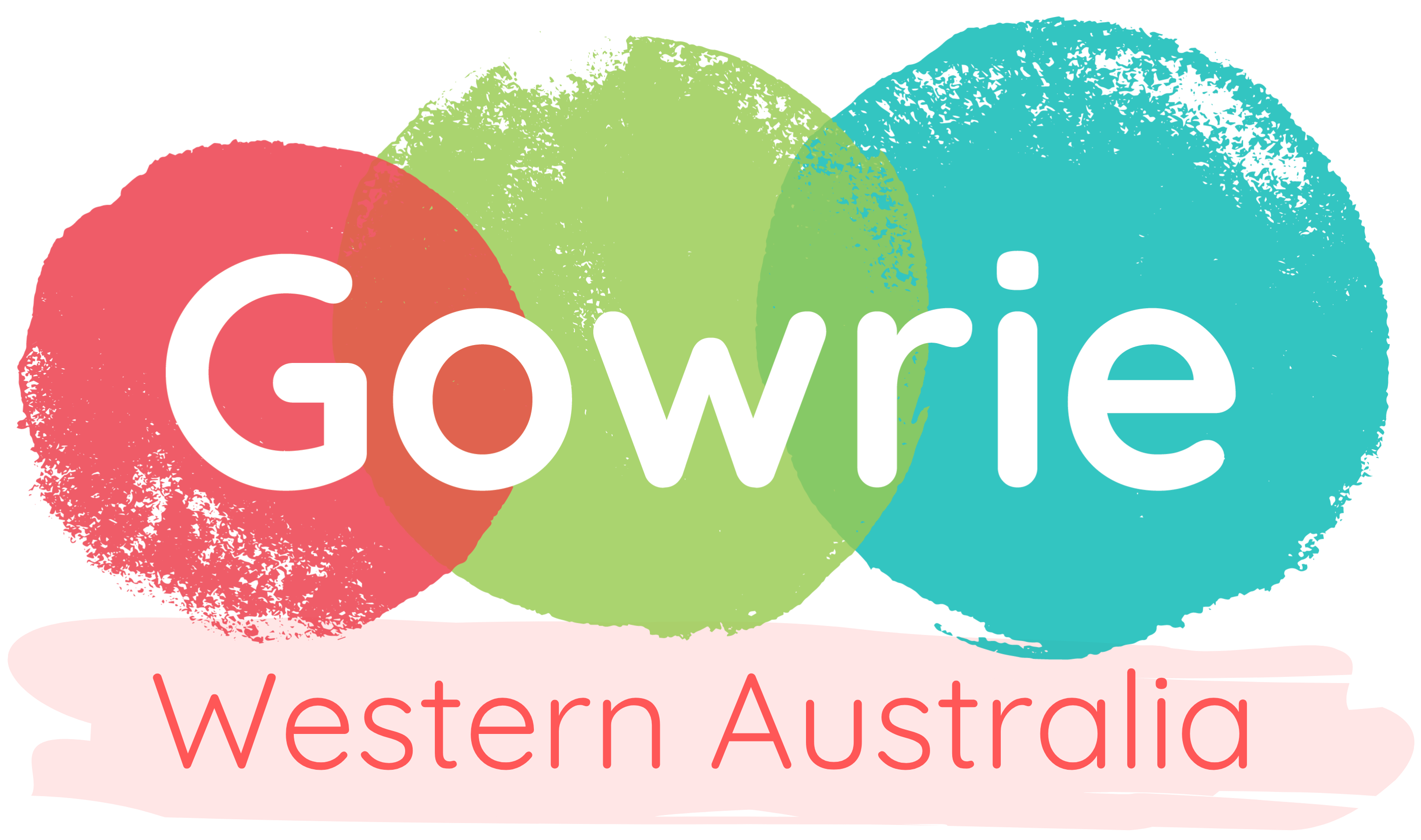This is how it all started
On 5 September 1940, her Excellency Lady Zara Gowrie, wife of the then Governor-General of Australia opened the Lady Gowrie Child Centre in Victoria Park, at a public gathering.
During the years 1939 to 1940, six centres were opened across Australia, one in each state. These centres were originally established by the Australian Commonwealth Government as demonstration centres for children, educators and programs. Because of the inspiration provided by Lady Zara Gowrie, it was decided that each of the six centres would bear her name.
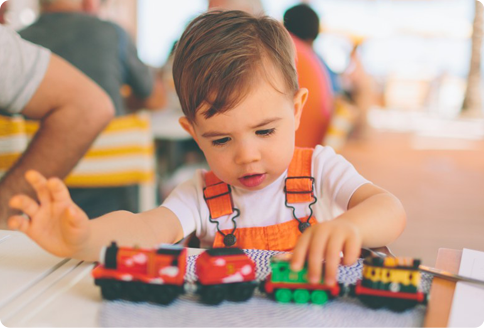
Gowrie in WA
Gowrie WA operates three early childhood education and care centres, employing educators and support staff that are passionately committed to building secure, trusting and strong relationships with children and families. Our adherence to the Early Years Framework and National Quality Standards is something we are proud of as is the dedication we have for ensuring children are provided with the very best care and education while growing and developing through the early years of life.
Gowrie WA also operates a family and community centre, located in Karawara we we provide a range of integrated services and programs for children, families and the community.
For our children, families and community
With our early established high quality childhood education and care centres, and dedicated family and community centre, Gowrie WA provides healthy and nurturing learning environments for our children, families and community, built on the foundations and dreams of both Lady Zara Gowrie and the wonderful educators and support staff that make Gowrie what it is today.

Our strategic plan
These are the six key values in our strategic plan:
Respect – We honour children, families, our team, and community as capable and resourceful, celebrating the richness of culture.
Connection – We build enduring connections with children, families, our team, and community to enrich our shared journey.
Learning – We champion inquiry and exploration, inspiring children and communities to grow and shape the future together.
Considered Growth – We grow with purpose, balancing innovation, sustainability, and responsibility.
Responsibility – We care for children, each other, Country, and culture, fostering respect for the future.
Integrity of Purpose – We reinvest in quality, improvement, and the well-being of children and our community.
The Board of Directors
The Gowrie WA Board is comprised of seven volunteer Directors who are dedicated to supporting the organisation. The Board meets monthly to ensure the strategic direction and overall progress of Gowrie WA remains true to our purpose and values.
It is with gratitude that we thank the Gowrie WA Board for their continued support, encouragement and dedication.
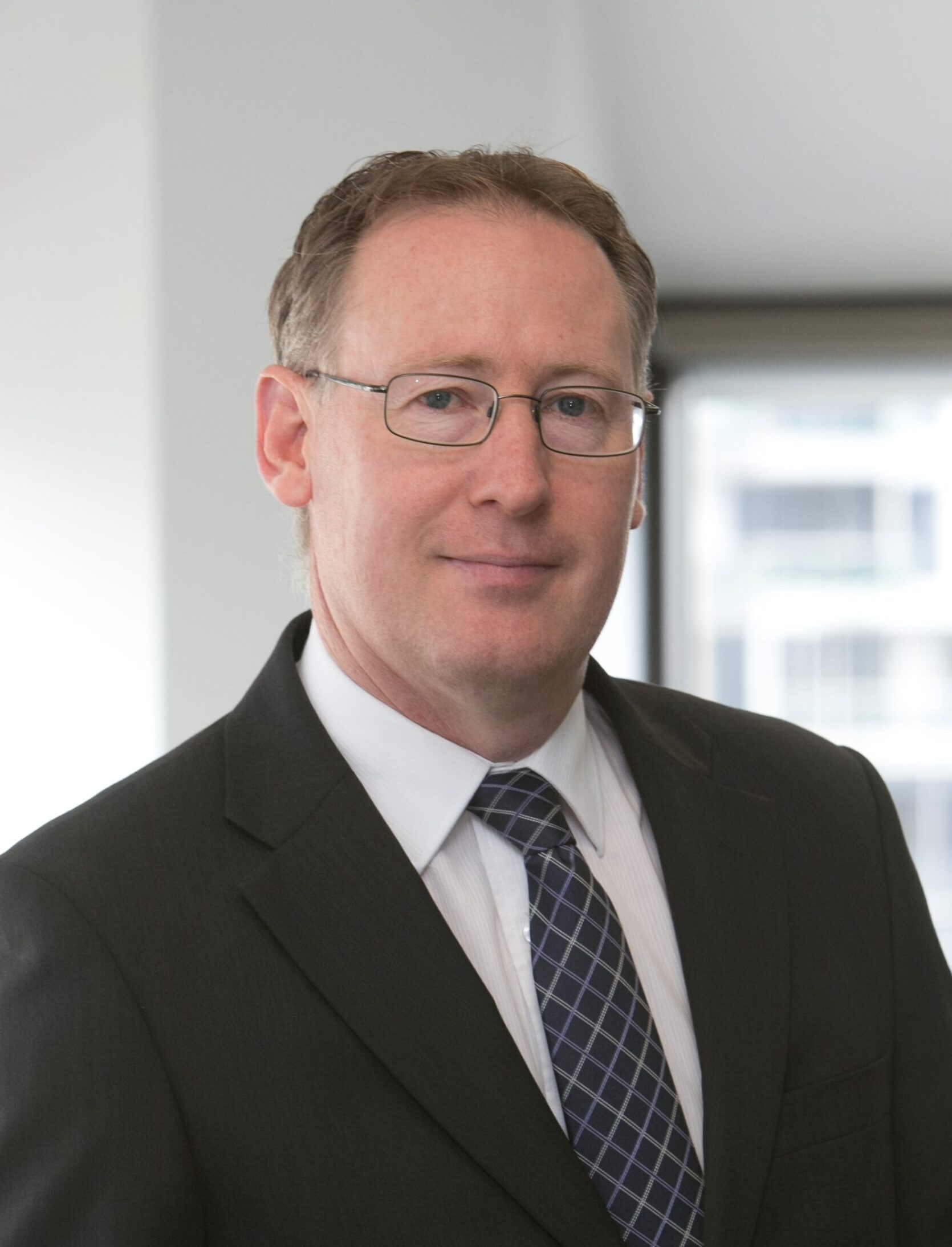
Simon White
ChairpersonSimon joined the Gowrie Western Australia Board’s in March 2013, originally as a Board Member, and in recent years taking on the role of Chairperson.
Simon holds a Master’s Degree in Human Resource Management plus a Business Degree with a double major in Industrial Relations and Management.
Simon’s qualifications are bolstered by the roles he has held and the high level skills he has developed.
Simon has had extensive experience working with clients across a wide range of industries in the field of employee relations, and has done so for over two decades.
Simon is currently an employee relations consultant working for an employer association in the resources sector.
His knowledge and expertise assists in supporting the enviable organisational culture the team at Gowrie Western Australia exhibit and nurture.
Simon provides the Board and Chief Executive Officer with relevant and up-to-date guidance and information on the ever changing landscape of the human resources and industrial relations landscape.
Simon is a father of two young adults. Simon staunchly supports the important role our organisation has in the not-for-profit arena and early childhood sector, and the quality early childhood education and care services offered by Gowrie Western Australia.
Simon is steadfastly aligned to Gowrie’s strategic plan and looks forward to the potential of Gowrie Western Australia expanding in to regional areas, where the need for quality care for children is vital.
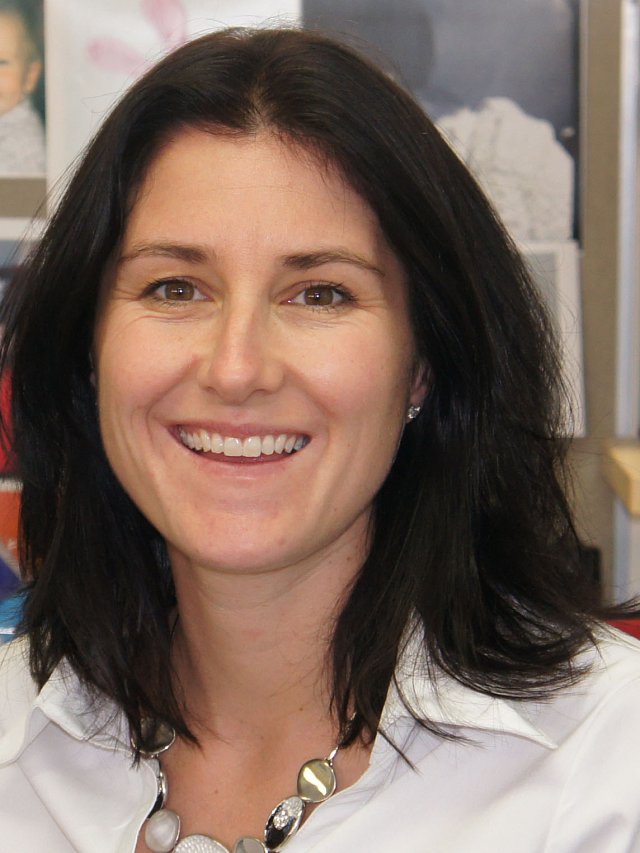
Jodie Holbrook
Deputy ChairpersonJodie joined the Gowrie Western Australia Board of Directors in March 2013.
Jodie has worked diligently to support the development of communities for over 20 years, in both government and non-government positions.
Jodie is committed to, and passionate about, the development of accessible and high quality services for children, their families, and the community.
Jodie believes in the need for greater investment and integration of early year’s services across Western Australia, especially in regional, rural and remote areas.
As a mother of two boys who have both experienced the services of Gowrie Western Australia in their younger years, Jodie is well-equipped to support the Gowrie Western Australia organisation with firsthand experience, and a wealth of knowledge and expertise.
Jodie’s expertise gained through her work with, and on, several Boards over many years, assists Jodie to bring a very sound level of understanding, efficiency and effectiveness to Gowrie Western Australia’s Board.
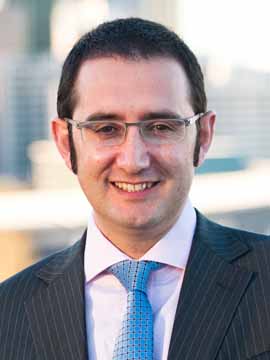
Alex Lustig
Board memberAlex joined the Gowrie Board in February 2013.
Alex has practiced law for two decades and is a partner of Jackson McDonald – Perth’s largest independent law firm.
Alex is passionate about access to high quality education in the early years, as well as ensuring related services are available to children, families and community. This ethos is shared by all members of the Gowrie Western Australia Board.
Alex is a Fellow of Leadership WA and brings to the Board experience in governance in the not for profit sector, and legal skills in the area of insurance, risk, and occupational safety and health. All of these areas of expertise are of great benefit to the strategic and operational plans of our organisation. They also greatly assist in ensuring Gowrie operates in a manner the Board and leadership team is fiercely proud of.
Alex believes in, and is aligned to, Gowrie’s purpose and values, and remains excited to be part of Gowrie Western Australia.
Alex appreciates the importance of family, and in his spare time, he enjoys spending time with his three children, and tries to remember what his wife has asked him to do.
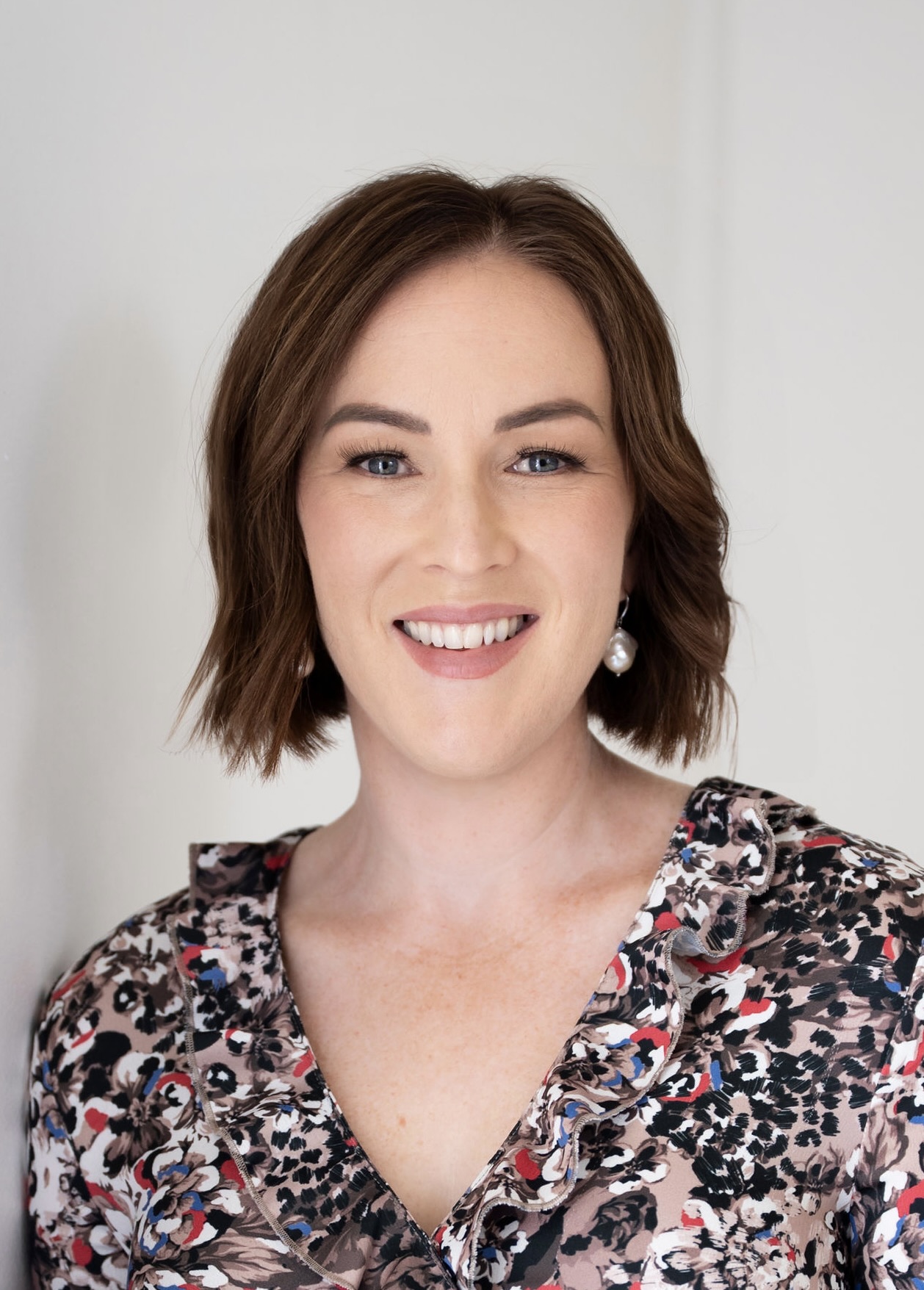
Michelle Owens
Board memberMichelle joined the Gowrie Western Australia Board in June 2019.
Michelle has been administering State taxes with the Department of Finance for over two decades and currently manages changes to the State tax laws for the benefit of the Western Australian community.
As a Fellow of Leadership WA, Michelle is committed to using her expertise in government administration to improve outcomes in the not-for-profit sector, and in particular at Gowrie Western Australia.
Michelle has a particular passion for early childhood learning and education as she is a mother to twin girls, and a step parent. Michelle very much enjoys spending her spare time with her husband and daughters, and when possible, gardening.
Michelle is thrilled to be able to contribute to Gowrie western Australia’s purpose and values through her knowledge, expertise and skills.
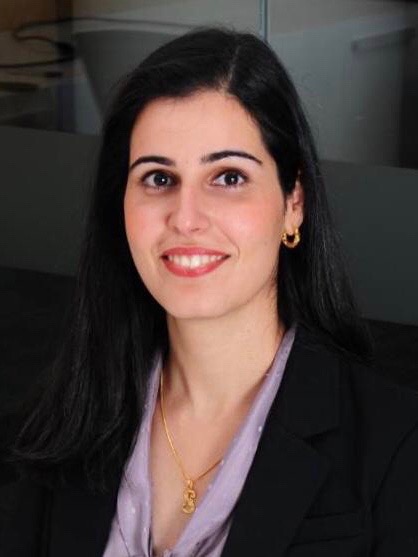
Shanaeya Sherdiwala
Board memberShanaeya joined the Gowrie Western Australia Board of Directors in June 2019.
Shanaeya holds a Masters Degree in Economics and is a Certified Practising Accountant (CPA).
Shanaeya has been in the public service for over 15 years, in a number of policy and advisory roles. Shanaeya spent nearly a decade as Chief Financial Officer of a range of State Government departments. Shanaeya currently holds a General Manager role in Program and Policy Management.
Shanaeya feels passionately about making quality early education and nurturing care available to all families with young children. Shanaeya is a parent of two young children.
She is committed to Gowrie Western Australia’s long term growth and sustainability whilst ensuring the organisation delivers its purpose and remains aligned to its values.
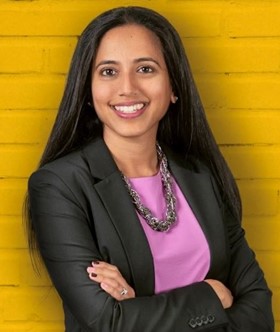
Nandini Pereira
Board memberNandini joined the Gowrie WA Board in March 2023. She is a Lawyer and Corporate Affairs expert with over 15 years’ experience in working in Australia, Nigeria and the Asia-Pacific region. Nandini has held various roles in legal, corporate governance, risk and assurance and government relations, and currently works as a Corporate Affairs Lead for a global energy company.
Nandini holds a combined Bachelor of Laws / Bachelor of Arts Degree from the University of Western Australia.
Nandini has a young son and is committed to ensuring that he and other children in the WA the community have access to high quality early childhood education and care services.
Nandini is aligned to Gowrie’s vision, purpose and values and is excited to serve as a member of the Gowrie WA Board.
Ivin Lim
Board memberInformation coming soon.
Our Leadership Team
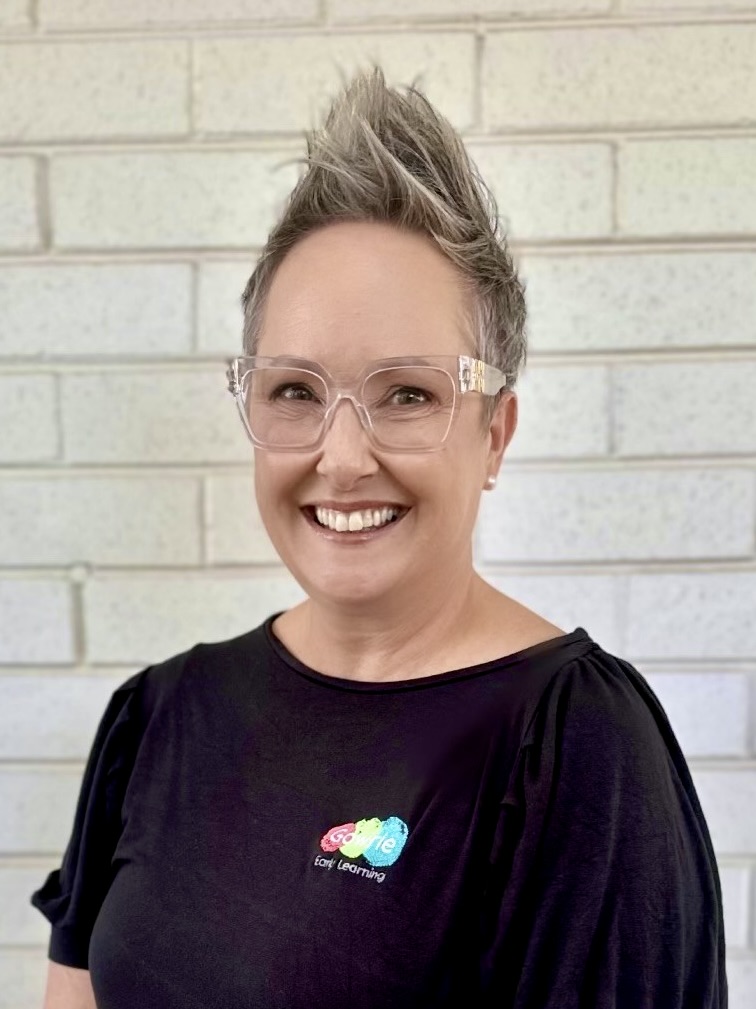
Tonia Westmore
Chief Executive OfficerTonia’s career in the early childhood sector spans well over three decades. The roles she has held have always focused on her passion and dedication to children, families and community. Tonia’s experience includes owning and operating early childhood education and care centres in the mid 1990’s, a combined 35 years of commitment in the early years space, 25 years working in the not for profit sector to better the lives of children, a background in lecturing and training in children’s services, and working in the disability arena with children and young people. Tonia is the author of a children’s book written to support the inclusion of children with disability.
Tonia was born in Perth and spent much of her childhood and teenage years growing up in cities and towns throughout regional and metropolitan Western Australia. Married to Ian and an immensely proud and loving mum and ‘Momo’ (grandmother) to five grandchildren, Tonia enjoys spending time with her family, her pets, and dabbling in projects where she can use her creativity.
Tonia’s strong alignment to Gowrie WA’s purpose and values has enabled her to pilot Gowrie WA through the process of establishing itself as a leader within the early childhood education and care sector. She strives for high quality care and early education, meaningful community services, and purposeful outcomes for children, families, the community, and her Gowrie team . Tonia works diligently and relentlessly to fulfil the purpose and values of Gowrie Western Australia to ensure children and families have access to services that provide benefit and support, and establish lifelong learnings. Tonia’s dedication to her team is evident in the way she leads them each day and her commitment to Gowrie being an enviable place to work, and an employer of choice.

Sara Hinchley
Executive Lead – People, Places and PartnershipWith over 30 years of experience in Early Childhood Education, Sara is a purpose-driven Executive Leader known for delivering high-impact programs and shaping policy both in Australia and Internationally.
Sara’s career is defined by a commitment to excellence, innovation and inclusive child centred practices that uplift communities and improve development outcomes for children and the Early Childhood Education and Care sector more broadly.
A strategic thinker with a growth mindset, Sara brings a combination of business acumen, policy expertise, and people leadership. She has a proven ability to communicate with influence, build strong relationships across all levels and lead organisations through complex change. Her leadership style is authentic and collaborative, inspiring high-performing teams and aligning stakeholders around shared visions.
Sara’s expertise spans governance, strategic planning, operational excellence, and sector-wide advocacy.
Outside of her professional life Sara enjoys gardening and spending quality time socialising with family and friends.
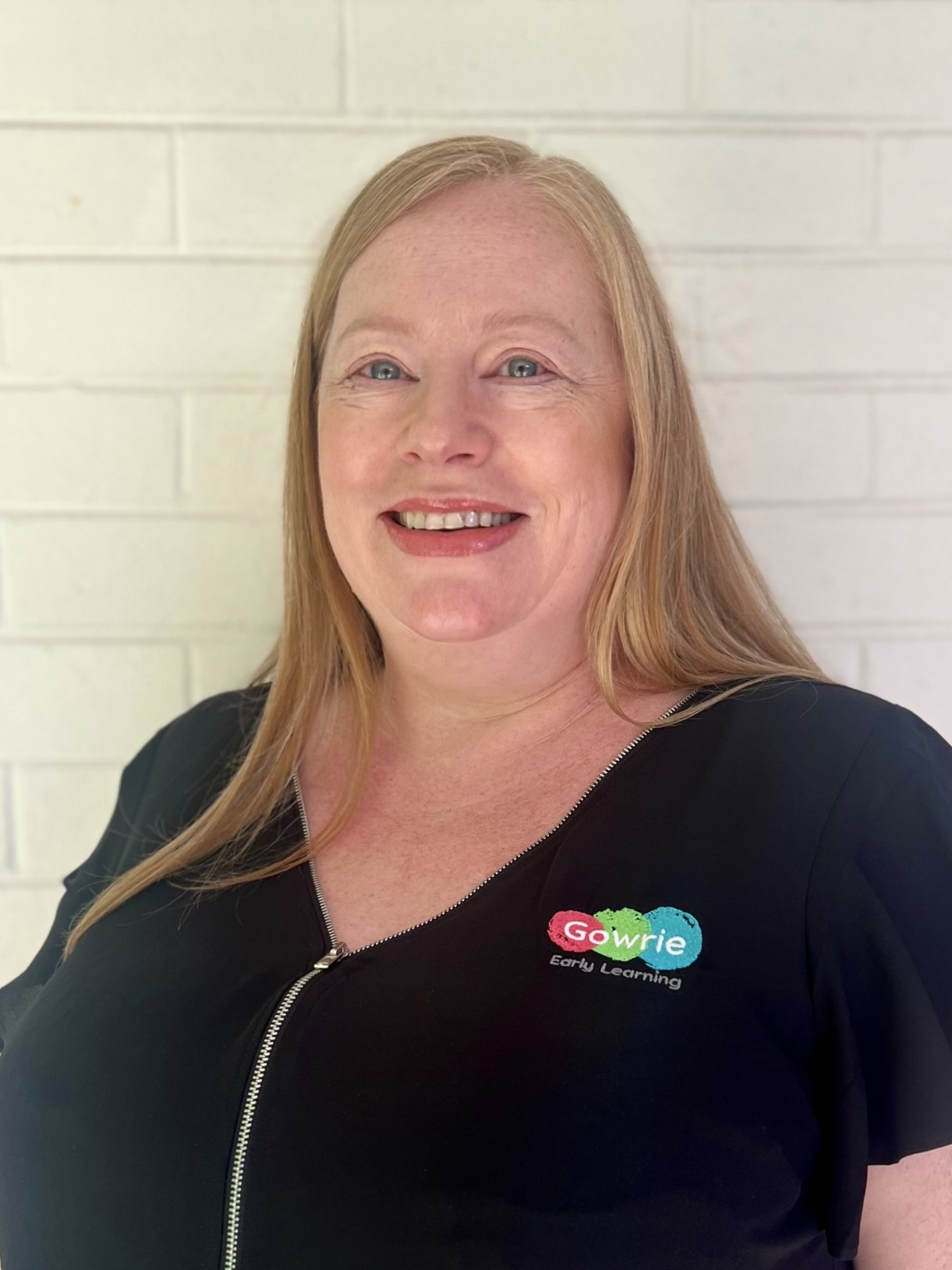
Paula Simpson
Executive Lead – FinancePaula grew up in a small town in East England and studied accounting at Loughborough University in the United Kingdom. After graduating, Paula spent seven years working in commercial finance roles in London before heading to Australia on a working holiday visa in 2002. On this trip, Paula fell in love with Perth and decided to make the move permanent. She has never looked back.
Paula has worked in Finance for a diverse range of Western Australian companies including a Margaret River winery and a salt mining company. Paula commenced at Gowrie in 2019, and each day she is delighted to be working with an organisation and team that shares her values and desire to make learning accessible to all children.
Paula is a proud mother of two primary school aged children. When not at Gowrie, Paula enjoys spending time with her treasured family and friends.
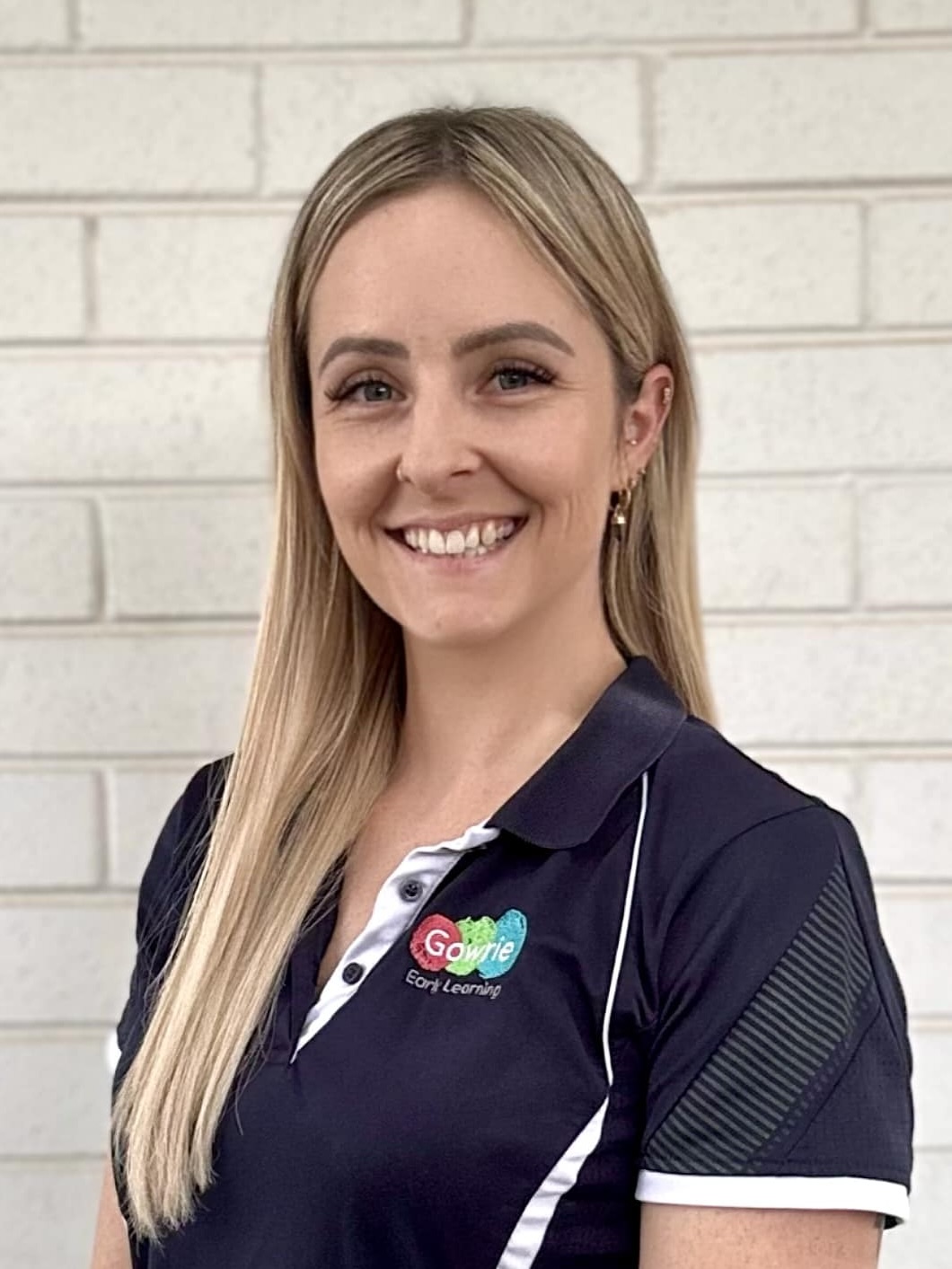
Mish Taylor
Executive Lead – Community ServicesMish’s desire to work with children, families and the community has been with her from a very young age. Mish commenced her career working part-time in Outside School Hours Care while completing her final years of high school. Upon completing high school, Mish commenced her studies in early childhood education and care while working in the sector.
In 2012, Mish commenced at Gowrie working at our Karawara Early Learning Centre and later at Leeming Family and Community Centre that Gowrie operated until the end of 2020. In July 2014 Mish was awarded the role of Community Programs Manager. Mish works mostly from the Karawara Family and Community Centres where her passion for making a difference to the lives of all, is comfortably aligned with Gowrie WA’s purpose to nurture the potential of the formative years for the benefit of children, families and community. Mish’s passion for working with the community and to care and support others, is further evident through her qualification gained as an Enrolled Nurse.
When not at Gowrie, Mish adores spending time with her beautiful young daughter and son, her husband and her family; all of who she holds dear, including her very spoilt English staffy. Each day, Mish looks forward to coming to Gowrie where she loves her role, and the wonderful team we are fortunate to have at our organisation.
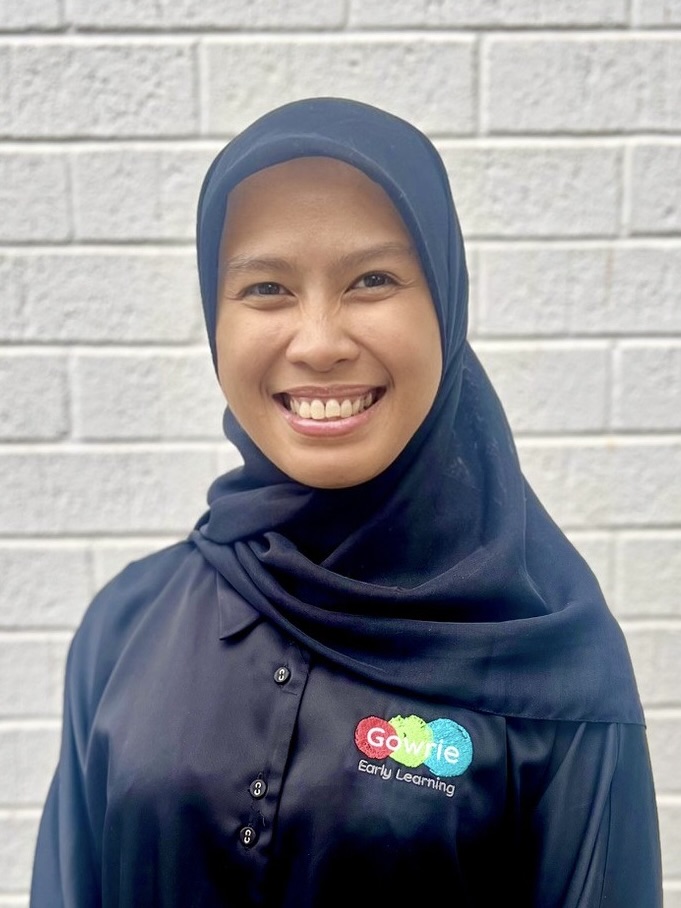
Yaya Tarjono
Assistant Education and Care Lead
KarawaraAfter completing her nursing degree in Indonesia, Yaya decided to get out of her comfort zone and her home city, Surabaya, where she grew up, and move to Australia to work as a nurse. Unfortunately, it didn’t quite go to plan, so Yaya chose to study a Diploma of Early Childhood Education and Care. She made this exciting decision as she loved being around young and developing learners, and she fell in love with beautiful Perth. Whilst completing her placement at Gowrie to finish her Diploma, Yaya joined our fantastic team in October 2016 as a casual team member at our Karawara site. In 2017, she was honoured to be offered the role of Assistant Manager at our wonderful Kewdale site, before moving back to Gowrie Early Learning Karawara to continue her leadership role.
Yaya’s passion for working with young leaners comes from the opportunity it affords her to witness the children under her care develop, learn, grow and flourish. Yaya thoroughly enjoys providing comfort and helping children settle into a new environment and bond with their educators and peers. She also values developing trusting and strong relationships with each child’s family. Yaya says her reward for her work is her days being filled with fun and laughter!
Yaya believes she is fortunate to have such grand and expansive outdoor learning environments, wonderful leadership, multicultural team members and beautiful families at Gowrie WA.
Yaya is a proud mother to three wonderful children. Yaya enjoys spending time with her family and travelling together around the state. She also looks forward to continuing to love her role and support the wonderful team at Gowrie.
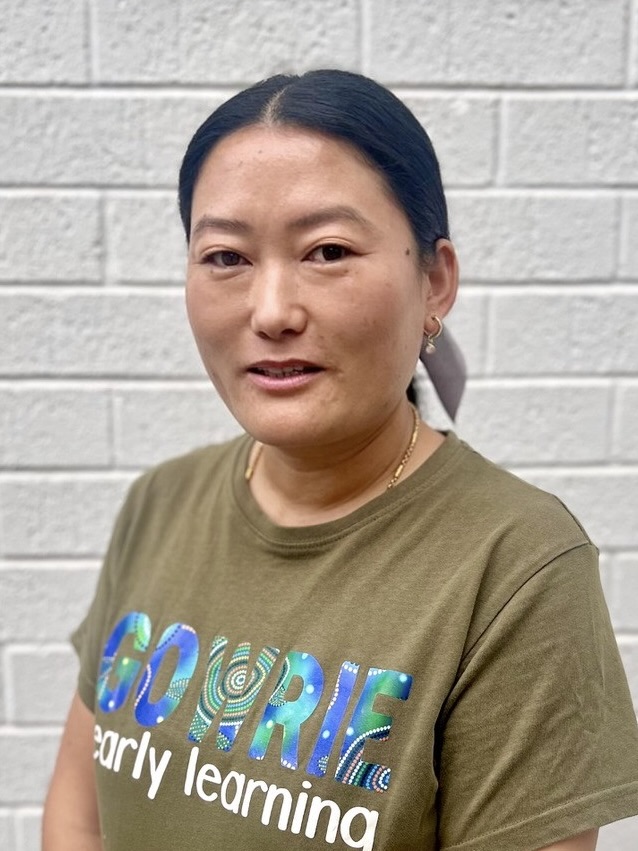
Nidup Delkar
Education and Care Lead
KewdaleAfter completing her Bachelor of Education, Nidup worked as a school teacher for 12 years in Bhutan. Enthusiastic to explore more about working with the formative age group, Nidup choose to embark on an educational journey and chose Australia to pursue her Diploma in Early Childhood.
During her exciting work placement at Gowrie in October 2019, Nidup joined the Gowrie team as a casual assistant Educator and has worked across all Gowrie centres. Nidup enjoys working with young children, sharing their curiosity about everything in life and strongly believes in fostering relationships with children and families and nurturing young children.
Nidup was offered the role of the Room Leader in 2021, which provided a perfect opportunity to put into practice everything that she had learned over the years.
In April 2023, Nidup was appointed to the role of Centre Operations Leader at our wonderful Kewdale Centre. Nidup’s professionalism, caring nature and calm approach, is an asset to Gowrie, and to our Kewdale team and centre. Nidup enjoys working with the team, guiding them and their practices, and learning from everyone in the process.
Nidup believes she is blessed to have the guidance of a wonderful leadership team, an amazing team of colleagues from diverse backgrounds, and the lovely children and families of Gowrie
Nidup is keen to explore the different parts of Perth on weekends. Nidup also enjoys reading books, drinking tea and going for picnics.
